Dear WesleyNexus Colleague:
January 6, 2019 begins the season of Epiphany which is celebrated by Christians across the world, including churches within the Wesleyan tradition. Epiphany comes from the Greek term epiphainein which means to reveal. Liturgically we focus on the story of the Magi’s journey from a distant land following a star leading them to the child 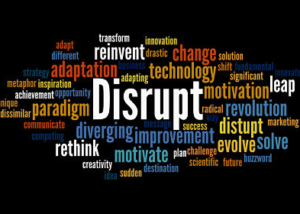 Messiah who has come to change everything. Hearing again this legendary story found in the Gospel of Matthew, it is appropriate to point to the wisemen of old who pondered the stars to understand our universe. After all, as Carl Sagan so succinctly pointed out, “we are star stuff,” filled with mystery, possibility and hope. But there is, of course, the downside, represented by evolutionary change which is both constructive and destructive at the same time. Economist Joseph Schumpeter used the term creative destruction to describe how creative innovation within capitalism provided for new products and business processes that improved the economic lives within society. At the same time, these innovations render current ways of producing goods and delivering services economically obsolete. Novelty and creativity are disruptive and as such, generates blowback from those who have vested interest in current structures of wealth, power and social status.
Messiah who has come to change everything. Hearing again this legendary story found in the Gospel of Matthew, it is appropriate to point to the wisemen of old who pondered the stars to understand our universe. After all, as Carl Sagan so succinctly pointed out, “we are star stuff,” filled with mystery, possibility and hope. But there is, of course, the downside, represented by evolutionary change which is both constructive and destructive at the same time. Economist Joseph Schumpeter used the term creative destruction to describe how creative innovation within capitalism provided for new products and business processes that improved the economic lives within society. At the same time, these innovations render current ways of producing goods and delivering services economically obsolete. Novelty and creativity are disruptive and as such, generates blowback from those who have vested interest in current structures of wealth, power and social status.
Perhaps even more disruptive than economic innovation is the breaking in of a new world view, a new way of understanding how the world works, how we came to be, what is right and good, and most of all what is considered sacred, that which is of God. Seen in this light, Christian Epiphany can be understood as profoundly disruptive, when the old-world view is completed, transformed and paradoxically made into a new creation. Over the centuries, this new world-view has become dominant in western culture, affecting religion, government and culture. This dominance is now waning, giving rise to a post-Christian culture, disrupting the presuppositions of the inherited Christian faith. As is well known, a significant source of this disruption comes from science and its companion technologies that have developed within the past 100 years. The United Methodist Church along with most Christian churches is struggling with this disruption and is expressing itself in significant conflict within the church. The current challenges within the UMC go way beyond just LGBTQ issues to the very heart of the Christian world view. WesleyNexus, by engaging in science and religion dialogue aims to bring together in a believable way the Christ epiphany from 2000 years ago with the hard-won insights from science, technology and even social sciences. What world view will evolve is not yet known, but, like the characters in the legend of the Magi, we follow both the star of faith and the light of scientific understanding. We hope you will continue to join us in our journey.
We appreciate the contributions we have received throughout the year. Our sixth annual Evolution Weekend in Maryland is just a month away and we currently are planning to provide a livestream of the event for our colleagues around the country. We can still utilize your help, however. Our theme for the 2019 event on February 10 will be “Human Origins,” with experts from the National Museum of Natural History. Please review the poster on our website, and print it out for posting on your church bulletin board and include a notice in your church newsletter. Please make your plans accordingly. Looking forward, we will continue to develop programs throughout 2019 as funds permit. We will need your support and hope you will consider helping us out. WesleyNexus is a 501(c)(3) charitable, educational organization, and we will acknowledge all gifts from individuals for tax reporting purposes. Thanks in advance for your support.
God Bless,
Rick,Maynard, and the rest of the
WesleyNexus Board of Directors
*********************************
Reminder to SAVE THE DATE!
Evolution Weekend – Maryland event February 10, 2019, 3:00-5:30 EST.
The 2019 Evolution Week-end Maryland event will be sponsored by WesleyNexus, live from the Baltimore-Washington Conference Center of the United Methodist Church. 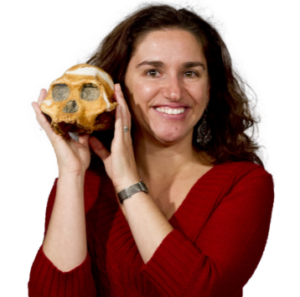 The theme for 2019 is Human Origins: Social and religious Impacts. Featured speakers are Dr. Briana Pobiner, Research Scientist, National
The theme for 2019 is Human Origins: Social and religious Impacts. Featured speakers are Dr. Briana Pobiner, Research Scientist, National 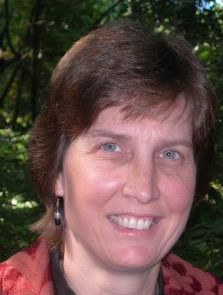 Museum of Natural History, Smithsonian Institution and Dr. Constance Bertka, President, Science and Society Resources, Smithsonian Consultant. Paleoanthropological discoveries continually provide us with new insights into the six million year history of humanity. While the fundamental narrative of life’s interrelatedness through evolutionary processes remains intact, ongoing fossil and archeological discoveries and advances in genetic studies enrich our understanding of the similarities, differences, and the relationship of modern Homo sapiens to earlier human species. Religious traditions in pursuit of global understanding and reconciliation will find both challenges and opportunities in the science of our origins. The presenters will review the most recent science, highlight key points for conversation, and encourage a discussion of these points among religious leaders. All persons in attendance will qualify for door prize drawings. Food and refreshments will be available, starting at 3:00 pm, and the program will commence at 3:30. Pre-registeration is not required. The event will be live-streamed and available on the WesletNexus website for individuals who cannot attend in person, and for local congregations to download for small group discussion. More information, the event flyer is available on the website: www.wesnex.org.
Museum of Natural History, Smithsonian Institution and Dr. Constance Bertka, President, Science and Society Resources, Smithsonian Consultant. Paleoanthropological discoveries continually provide us with new insights into the six million year history of humanity. While the fundamental narrative of life’s interrelatedness through evolutionary processes remains intact, ongoing fossil and archeological discoveries and advances in genetic studies enrich our understanding of the similarities, differences, and the relationship of modern Homo sapiens to earlier human species. Religious traditions in pursuit of global understanding and reconciliation will find both challenges and opportunities in the science of our origins. The presenters will review the most recent science, highlight key points for conversation, and encourage a discussion of these points among religious leaders. All persons in attendance will qualify for door prize drawings. Food and refreshments will be available, starting at 3:00 pm, and the program will commence at 3:30. Pre-registeration is not required. The event will be live-streamed and available on the WesletNexus website for individuals who cannot attend in person, and for local congregations to download for small group discussion. More information, the event flyer is available on the website: www.wesnex.org.
*********************************
New book – God Can’t by Thomas Jay Oord
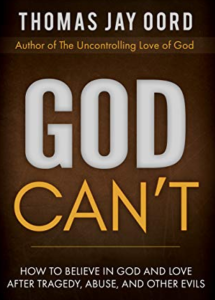 This is a first notice about author Thomas Jay Oord’s new book God Can’t: How to Believe in God and Love after Tragedy, Abuse and other Evils (2019: SacraSage Press) in both paperback and kindle editions. Tom Oord is an original member of the WesleyNexus Advisory Board, and well known as a theologian, philosopher, and scholar of multi-disciplinary studies. He is an award-winning author or editor of more than twenty-five books and an award-winning professor. Oord is known for his contributions to research on love, open and relational theology, issues in science and religion, and freedom for transformation. He is or has been president of several scholarly societies and lectures at institutions and churches around the globe. Oord blogs frequently at his website: http://thomasjayoord.com and find his latest book at www.godcant.com Some people think God causes or allows suffering to teach us lessons or build our character. God Can’t disagrees. Oord says God squeezes good from the evil God didn’t want in the first place. God uses pain and suffering without willing or even allowing it. Most people think God can overcome evil singlehandedly. In God Can’t, Oord says God needs cooperation for love to reign now and later. This leads to a better view of the afterlife he calls, “relentless love.” It rejects traditional ideas of heaven, hell, and annihilation. Relentless love holds to the possibility all creatures and all creation will respond to God’s love.
This is a first notice about author Thomas Jay Oord’s new book God Can’t: How to Believe in God and Love after Tragedy, Abuse and other Evils (2019: SacraSage Press) in both paperback and kindle editions. Tom Oord is an original member of the WesleyNexus Advisory Board, and well known as a theologian, philosopher, and scholar of multi-disciplinary studies. He is an award-winning author or editor of more than twenty-five books and an award-winning professor. Oord is known for his contributions to research on love, open and relational theology, issues in science and religion, and freedom for transformation. He is or has been president of several scholarly societies and lectures at institutions and churches around the globe. Oord blogs frequently at his website: http://thomasjayoord.com and find his latest book at www.godcant.com Some people think God causes or allows suffering to teach us lessons or build our character. God Can’t disagrees. Oord says God squeezes good from the evil God didn’t want in the first place. God uses pain and suffering without willing or even allowing it. Most people think God can overcome evil singlehandedly. In God Can’t, Oord says God needs cooperation for love to reign now and later. This leads to a better view of the afterlife he calls, “relentless love.” It rejects traditional ideas of heaven, hell, and annihilation. Relentless love holds to the possibility all creatures and all creation will respond to God’s love.
God Can’t is written in understandable language. Thomas Jay Oord explains these ideas through true stories, illustrations, and scripture. God Can’t is for those who want answers to tragedy, abuse, and other evils that make sense! All of Dr. oord’s books may be reviewed at https://www.amazon.com/author/thomasjayoord
*********************************
Jesus: Modeling an Evolving Faith by Richard Rohr
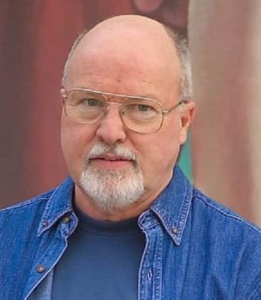 In this article, Richard Rohr focuses on our need to get comfortable with change. “There is not a single discipline today that does not recognize change, development, growth, and some kind of evolving phenomenon: psychology, cultural anthropology, history, physical sciences, philosophy, social studies, drama, music, on and on. But in theology’s search for the Real Absolute, it imagined a static “unmoved mover,” as Aristotelian philosophy called it, a solid substance sitting above somewhere. Theology has struggled to imagine that once God includes us in the narrative then God is for sure changing! Is that not what the Bible—at its core—is saying? We matter to God and God thus allows us to change the narrative of history . . . and the narrative of God.” Change and disruption will come and we are invited to be participants. You can find the article here.
In this article, Richard Rohr focuses on our need to get comfortable with change. “There is not a single discipline today that does not recognize change, development, growth, and some kind of evolving phenomenon: psychology, cultural anthropology, history, physical sciences, philosophy, social studies, drama, music, on and on. But in theology’s search for the Real Absolute, it imagined a static “unmoved mover,” as Aristotelian philosophy called it, a solid substance sitting above somewhere. Theology has struggled to imagine that once God includes us in the narrative then God is for sure changing! Is that not what the Bible—at its core—is saying? We matter to God and God thus allows us to change the narrative of history . . . and the narrative of God.” Change and disruption will come and we are invited to be participants. You can find the article here.
********************************
10 Misconceptions about Evolution by Jim Stump
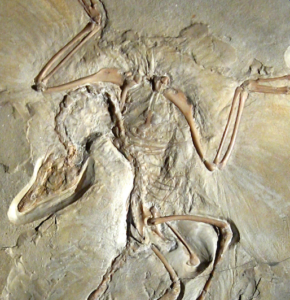 In this Biologos blog, Senior Editor Jim Stump, addresses some of the misunderstandings of evolutionary biology that people of faith seem to stumble over as they try to understand what the science is saying. Though rather basic, it is important to be reminded that many people struggle with evolution and that this struggle is made more difficult when the theory is misunderstood. You can find the article here.
In this Biologos blog, Senior Editor Jim Stump, addresses some of the misunderstandings of evolutionary biology that people of faith seem to stumble over as they try to understand what the science is saying. Though rather basic, it is important to be reminded that many people struggle with evolution and that this struggle is made more difficult when the theory is misunderstood. You can find the article here.
*********************************
35 years ago, Isaac Asimov was asked by the Star to predict the world of 2019. Here is what he wrote
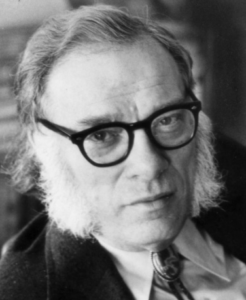 January is a good time to speculate on what changes will occur over the coming years and decades. It is the stuff of science fiction, utopian dreams and dystopian nightmares. In this article, the Toronto Star brings back the 1983 musings of scientist and writer Isaac Asimov where he peers into the future 35 years from then. He seems to get some things right, some things wrong and some, such as industry in space, are not quite ready but may be soon. But, “although the world of 2019 will be far changed from the present world of 1984, that will only be a barometer of far greater changes planned for the years still to come.” You can read the article here.
January is a good time to speculate on what changes will occur over the coming years and decades. It is the stuff of science fiction, utopian dreams and dystopian nightmares. In this article, the Toronto Star brings back the 1983 musings of scientist and writer Isaac Asimov where he peers into the future 35 years from then. He seems to get some things right, some things wrong and some, such as industry in space, are not quite ready but may be soon. But, “although the world of 2019 will be far changed from the present world of 1984, that will only be a barometer of far greater changes planned for the years still to come.” You can read the article here.
*********************************
Intellectual humility: the importance of knowing you might be wrong by Brian Resnick
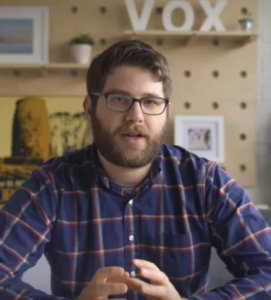 Julia Rohrer wants to create a radical new culture for social scientists. A personality psychologist at the Max Planck Institute for Human Development, Rohrer is trying to get her peers to publicly, willingly admit it when they are wrong.
Julia Rohrer wants to create a radical new culture for social scientists. A personality psychologist at the Max Planck Institute for Human Development, Rohrer is trying to get her peers to publicly, willingly admit it when they are wrong.
To do this, she, along with some colleagues, started up something called the Loss of Confidence Project. It’s designed to be an academic safe space for researchers to declare for all to see that they no longer believe in the accuracy of one of their previous findings. The effort recently yielded a paper that includes six admissions of no confidence. And it’s accepting submissions until January 31.
Perhaps theology and religion could use some safe spaces as well. The article can be found here.
*********************************
Upcoming events
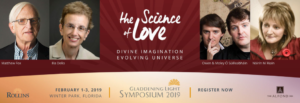 The Gladdening Light Symposium for 2019 has announced its topic and featured speakers: “The Science of Love: Divine Imagination, Evolving Universe,” scheduled February 1-3, 2019 in Winter Park, Florida. Speakers are Dr. Matthew Fox, acclaimed activist and theologian who ignited the (r)evolutionary creation spirituality movement, and Dr. Ilia Delio, Villanova professor and scholar on the integration of science and religion. Dr. Fox was a keynore speaker at the IRAS conference in 2017, and Dr. Delio (a long time friend of WesleyNexus) was a keynote speaker at the IRAS Conference in 2018. This event takes place on the campus of Rollins College. Registration information is available at www.gladdeninglight.org or email info@gladdeninglight.org
The Gladdening Light Symposium for 2019 has announced its topic and featured speakers: “The Science of Love: Divine Imagination, Evolving Universe,” scheduled February 1-3, 2019 in Winter Park, Florida. Speakers are Dr. Matthew Fox, acclaimed activist and theologian who ignited the (r)evolutionary creation spirituality movement, and Dr. Ilia Delio, Villanova professor and scholar on the integration of science and religion. Dr. Fox was a keynore speaker at the IRAS conference in 2017, and Dr. Delio (a long time friend of WesleyNexus) was a keynote speaker at the IRAS Conference in 2018. This event takes place on the campus of Rollins College. Registration information is available at www.gladdeninglight.org or email info@gladdeninglight.org
*********************************
Wesleyan Theological Society Annual Meeting – Friday-Saturday, March 15-16, 2019.
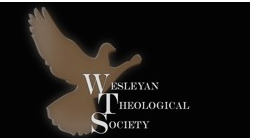 The 2019 WTS Annual meeting will be hosted by Wesley Theological Seminary in Washington DC. The partner societies will be meeting on Thursday, March 14, 2019, including the Wesleyan Philosophical Society, The Wesleyan Historical Society, and the Wesleyan Liturgical Society. Registration is open, and membership information is included on the website and can be secured at the same time as conference registration. Several members of the WesleyNexus Board will be presenting papers in the Science and Theology section of WTS, and Advisory Board member Dr. Thomas Jay Oord will be making several presentations. Link to the WTS Store to register for the 2018 Meeting: https://my.nnu.edu/ics/Extensions/Store/store.aspx?StoreCode=WTSC
The 2019 WTS Annual meeting will be hosted by Wesley Theological Seminary in Washington DC. The partner societies will be meeting on Thursday, March 14, 2019, including the Wesleyan Philosophical Society, The Wesleyan Historical Society, and the Wesleyan Liturgical Society. Registration is open, and membership information is included on the website and can be secured at the same time as conference registration. Several members of the WesleyNexus Board will be presenting papers in the Science and Theology section of WTS, and Advisory Board member Dr. Thomas Jay Oord will be making several presentations. Link to the WTS Store to register for the 2018 Meeting: https://my.nnu.edu/ics/Extensions/Store/store.aspx?StoreCode=WTSC
*********************************
Reminder
2019 IRAS Summer Conference: June 22-29 on Star Island
 The 65th Annual Summer Conference sponsored by the Institute on Religion in an Age of Science is scheduled for June 22-29, 2019 in Star Island off the coast of Portsmouth, New Hampshire.
The 65th Annual Summer Conference sponsored by the Institute on Religion in an Age of Science is scheduled for June 22-29, 2019 in Star Island off the coast of Portsmouth, New Hampshire.
The CRISPR Apple on the Tree of Knowledge
Bioengineering, Gene Editing, and the Human Future:
Human gene editing is quickly outstripping the decision-making mechanisms we have in place for approving or regulating technology usage. The technology to directly manipulate the genomes of plants, animals and even humans is developing rapidly and is already in use. Can it be rationally managed and applied ethically? What are the medical, economic, environmental, and social consequences of genetic manipulation? At this conference, scientists, theologians, religious scholars and ethicists will offer illuminating and thought-provoking perspectives on the issues surrounding the gene-editing technology known as CRISPR. Scientists will explain the technique of gene editing with CRISPR and ethicists will ponder the impacts on society, from pest control to designer babies. What are the implications for agriculture and world hunger? What about medical advances that are too costly for most of the world? Theologians and religious scholars will discuss how we understand human nature and responsibility from within various religious traditions such as Christianity, Islam, Judaism, Buddhism and Hinduism. Most fundamentally, we will explore ethical issues such as therapy versus enhancement; species elimination versus global epidemic; germline intervention; and the long-term effects of bioengineering and genome editing that are within the realm of CRISPR possibility.
The Call for Papers is now out, and all theologians and scientists, professionals and grad students, are encouraged to submit for presentations or poster sessions. Scholarships are available. For more information go to the IRAS website www.iras.org.
